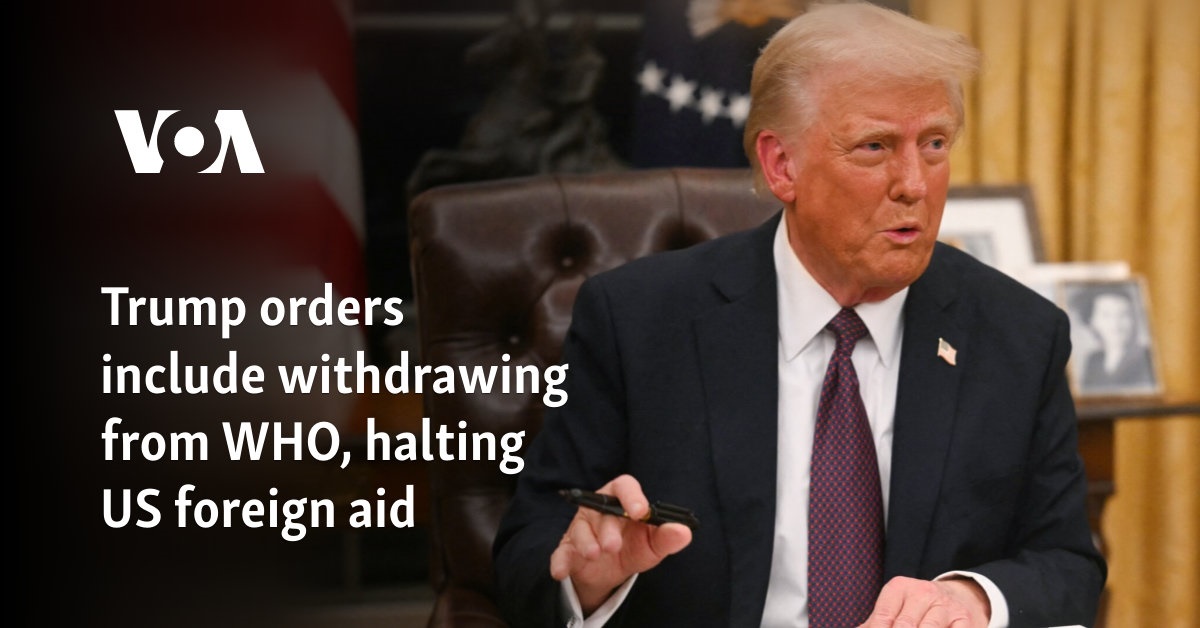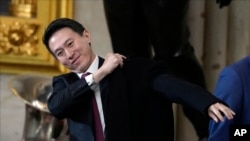U.S. President Donald Trump issued a series of executive actions after taking office Monday, including moving to withdrawal from international health and climate bodies and directing a suspension of U.S. foreign aid.
A set of orders focused on immigration, such as declaring an emergency on the U.S.-Mexico border, ending asylum and halting birthright citizenship for some children born in the United States.
Trump also ordered vetting and screening “to the maximum degree possible” all those who want to enter the United States, and for the government to identify countries that may have screening procedures deficient enough to warrant blocking their nationals from entering the United States.
In his first term in office, Trump pursued an “America First” form of foreign policy, and an order he signed Monday directs new Secretary of State Marco Rubio to focus State Department efforts on that mission.
“From this day forward, the foreign policy of the United States shall champion core American interests and always put America and American citizens first,” the order said.
Trump ordered the United States to withdraw from the 2015 Paris climate accord, a repeat of a move he also made in his first term. Trump said the U.S. has a successful record of “advancing both economic and environmental objectives” that should be a model to other countries.
Nearly 200 countries signed the agreement aimed at limiting global warming with each country providing its own plan for limiting greenhouse gas emissions that contribute to climate change.
In another repeat from his first time in office, Trump ordered the United States to withdraw from the World Health Organization due to complaints that the agency mismanaged the COVID-19 pandemic and gets too much funding from the U.S.
Calling U.S. foreign aid “not aligned with American interests,” Trump issued an order to pause foreign development assistance for 90 days and for the programs to undergo reviews.
Funding for many programs has already been appropriated by Congress, so it was not clear how much aid would be initially affected by the order.
Trump also reversed an order signed by former President Joe Biden last week that had removed Cuba from the list of state sponsors of terror.
Cuban President Miguel Diaz-Canel responded to Trump’s move Monday by calling it “an act of arrogance and disregard for the truth.”
On trade, Trump issued an order calling for a review of a number of trade agreements, including one with China and the U.S.-Mexico-Canada Agreement.
He also specifically called for an assessment of “unlawful migration and fentanyl flows” from Canada, Mexico and China. Ahead of taking office, Trump said those countries would need to act on those areas in order to avoid tariffs on goods sent to the United States.
In response to a law passed during Biden’s term that would have blocked TikTok in the United States in connection with national security concerns, Trump signed an order telling the Justice Department not to enforce that ban until his administration can “determine the appropriate course forward.”
The law directed a TikTok ban unless its China-based parent company sold it to an approved buyer. U.S. officials promoting the ban expressed concerns that the Chinese government could obtain Americans’ digital data.
Trump himself tried to carry out a similar ban during his first term, but in recent weeks has championed keeping TikTok available to U.S. users, including the potential for the U.S. government to acquire a stake in the company.
Some information for this report was provided by The Associated Press and Reuters


